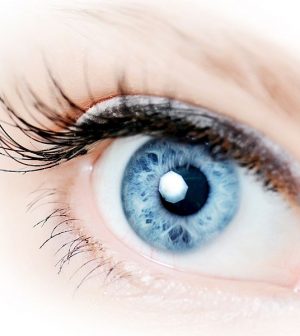- Could Your Grocery Store Meat Be Causing Recurring UTIs?
- Are You Making This Expensive Thermostat Error This Winter?
- Recognizing the Signs of Hypothyroidism
- 10 Strategies to Overcome Insomnia
- Could Artificial Sweeteners Be Aging the Brain Faster?
- Techniques for Soothing Your Nervous System
- Does the Water in Your House Smell Funny? Here’s Why
- Can a Daily Dose of Apple Cider Vinegar Actually Aid Weight Loss?
- 6 Health Beverages That Can Actually Spike Your Blood Sugar
- Treatment Options for Social Anxiety Disorder
How to Prevent and Treat Eye Allergies

When it comes to allergies, allergic rhinitis with its congested, itchy nose gets a lot of attention. But for some, allergic conjunctivitis with itchy, watery eyes is the greater nuisance. You might even have both reactions.
Allergic conjunctivitis is inflammation of the conjunctiva — the layer of tissue lining the eyelids and covering the whites of the eyes. It’s caused by contact with a substance you’re allergic to, such as outdoor pollen or indoor pet dander or dust spores. Blood vessels in the eye swell, and eyes become itchy and red, and start to tear.
People with seasonal allergies typically have a stronger reaction when outdoors on hot, dry days when the pollen count is high. Symptoms tend to be less severe for people with indoor allergies, though these can occur any time of the year and flare anytime you stir up dust, from vacuuming to grooming your dog.
The symptoms of allergic conjunctivitis include itchy, burning, red eyes; puffy, swollen eyelids; watery eyes and/or stringy discharge; and sensitivity to light.
Though the best way to avoid symptoms is to avoid the substances that trigger your allergy, this isn’t always possible. Try treating symptoms with lubricating eye drops and by applying cool compresses. Antihistamine medications may help, but they can make watery eyes too dry, so use with caution.
How to Reduce Indoor Allergy Exposure
- Use a vacuum with a HEPA filter to better remove dust and dander.
- Keep pets out of your bedroom.
How to Reduce Outdoor Allergy Exposure
- Wear sunglasses and a wide-brimmed hat to shield eyes.
- Rinse your eyes when you get home.
For true relief, get a proper diagnosis from an allergist who can identify your specific allergens and prescribe stronger medications if needed.
More information
The American Academy of Allergy, Asthma & Immunology has detailed information on eye allergy from symptoms to treatments.
Source: HealthDay
Copyright © 2026 HealthDay. All rights reserved.










